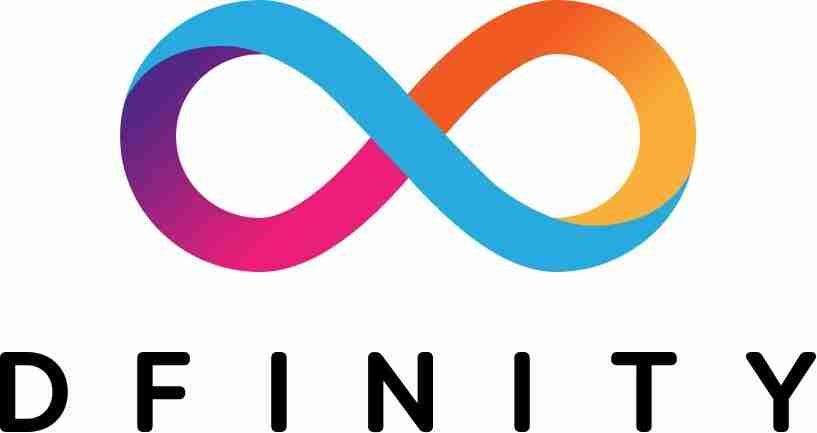 Crypto Friendliness in Switzerland
Crypto Friendliness in Switzerland
Switzerland, renowned for its breathtaking landscapes and tourist attractions, is not only a haven for natural beauty but also a welcoming hub for cryptocurrency enthusiasts and entrepreneurs.
Although it may not hold the top spot among cryptocurrency nations, Switzerland has embraced the role of a trailblazer. To operate within the legal framework in Switzerland, cryptocurrency entities must secure a license from FINMA (Financial Market Supervisory Authority), the governing body overseeing cryptocurrency exchanges in the country.
Switzerland’s proactive stance has significantly promoted the cryptocurrency sector, as it seizes every opportunity to solidify its position as a leading player in the global cryptocurrency arena.
Is Cryptocurrency Regulated in Switzerland?
In Switzerland, the world of virtual currencies and cryptocurrencies dances to a unique tune, where they’re predominantly considered assets or property. The legality of their exchange hinges on a delicate balance between asset protection and investor interests.
For a cryptocurrency to find its footing in the Swiss landscape, it must embark on a journey through the regulatory labyrinth, ultimately emerging with a prized license from the Swiss Financial Market Supervisory Authority (FINMA).
Back in 2018, FINMA unveiled a set of guidelines that cleverly applied existing financial legislation to a wide array of domains, ranging from traditional banking to cutting-edge securities trading and collective investment schemes, all depending on their intricate structural designs.
Not content with resting on its laurels, Switzerland’s forward-thinking government got in on the crypto action in 2019, giving the nod to a proposal urging the federal council to adapt existing rules to accommodate these digital assets. The government also brought the Blockchain Act to center stage, providing yet another regulatory body to assess the legality of cryptocurrency exchanges within Swiss law.
But that’s not all – in this alpine nation, even Initial Coin Offerings (ICOs) and Security Token Offerings (STOs) have solid legal foundations for cryptocurrency exchange. FINMA has been clear on this matter, leveling the play field, with no discrimination between different technologies employed for the same crypto activities.
In the heart of Switzerland’s financial world, cryptocurrencies aren’t just assets; they’re the stars of a legal and regulatory spectacle, set against the backdrop of a picturesque country known for its precision, innovation, and, now, its embrace of the digital future.
Understanding Swiss Rules on Crypto Assets Trading
Switzerland, renowned for its precision and innovation, holds a unique perspective when it comes to the world of cryptocurrency. Here, the crypto exchange journey begins with a pivotal step – obtaining a license from the Financial Market Supervisory Authority (FINMA), the ultimate gatekeeper overseeing all matters pertaining to virtual currencies and digital assets.
But Switzerland doesn’t just embrace the digital frontier; it shapes it with careful consideration. The recent legislation governing crypto trading on Distributed Ledger Technology (DLT) has not only bolstered investor security but also fostered an environment conducive to technological progress. In this picturesque nation, the synergy between regulation and innovation is a fine art.
One of the key benefits of Swiss DLT regulation is its commitment to safeguarding investors in times of uncertainty, particularly in cases of insolvency. It ensures that crypto-based assets remain separate and protected in the event of bankruptcy, offering a safety net for those navigating the crypto landscape.
The Federal Act of the Adaption of Federal Law to Development in Distributed Electronics Register Technology (DLT Act) came into force on August 1st, following rigorous parliamentary scrutiny and government review. This law serves as a crucial milestone in regulating the handling of crypto-based assets and data separation.
According to Bernadette Leuzinger, the CEO of Crypto Finance Asset Management, which boasts the first crypto fund approved by FINMA, Swiss regulators possess a deep understanding of crypto assets. They keep a vigilant eye on market developments and swiftly address regulatory concerns, ensuring a harmonious coexistence between innovation and oversight.
In the world of crypto assets, conventional thinking doesn’t apply. It requires a new paradigm, one that accounts for unique challenges like counterparties execution and asset safekeeping. Existing trackers and certificates in the crypto market don’t eliminate risks tied to counterparties or issuers.
Switzerland’s approach, with its finely-tuned regulations and progressive mindset, stands as a testament to its commitment to navigating this exciting digital frontier while safeguarding investors along the way.
Crypto Legislation in Switzerland: The Block Chain Act’s Impact
Switzerland, a nation known for its precision and innovation, doesn’t just watch from the sidelines when it comes to blockchain technology; it’s an active player in the game. In fact, some public institutions have already dipped their toes into the world of blockchain-based solutions and even embraced cryptocurrencies for payments.
To foster further growth in the Swiss digital asset ecosystem, two financial market infrastructures with a laser focus on Distributed Ledger Technology (DLT) have recently received the coveted seal of approval from the Swiss Financial Market Supervisory Authority, known as FINMA. Meet SIX Digital Exchange AG, licensed as a central securities depository, and its dynamic affiliate, SDX Trading AG, licensed as a stock exchange. These entities are the pillars of Switzerland’s commitment to advancing the world of digital assets.
Venture into areas like Zug and Zurich, and you’ll find yourself in the heart of Switzerland’s thriving blockchain scene, affectionately dubbed the “crypto valley.” This region has successfully attracted blockchain businesses and nurtured a burgeoning ecosystem.
It’s home to notable names such as the crypto bank SEBA, Sygnum, and the veteran blockchain enterprise, Bitcoin Suisse. Not to be outdone, Geneva also stands tall as a significant hub for blockchain projects, showcasing Switzerland’s national commitment to blockchain innovation.
Initially, the crypto valley was synonymous with Initial Coin Offerings (ICOs), drawing considerable interest from enthusiastic investors. However, by 2018, the ICO market had cooled down substantially.
Today, Switzerland’s blockchain landscape is marked by maturity, featuring projects often backed or launched by well-established financial institutions and technology giants.
In a significant milestone in September 2021, FINMA gave its stamp of approval to the first Swiss Crypto Fund, the Crypto Market Index Fund. This groundbreaking fund primarily focuses on crypto assets with substantial trading volumes, underscoring Switzerland’s evolving role in the global cryptocurrency arena.
Switzerland isn’t just watching blockchain’s evolution; it’s shaping it, providing fertile ground for innovation and drawing a roadmap for a future where digital assets and blockchain technology take the center stage.
Can you Buy and Cash Out Crypto in Switzerland?
Since the legal body of Switzerland considers cryptocurrency as legal and the same goes with some countries, it can be exchanged as a legal tender. In Switzerland, crypto currencies are deemed legal because the Financial Market Supervisory Authority has deemed it so.
Crypto has so many platforms that are made available for people to convert their cryptocurrencies into legal tender. In Switzerland, cryptocurrency can be converted to the Swiss franc.
Investors can choose to sell their cryptocurrencies through the various platforms like coin base and wivex, which are cryptocurrency exchange and peer to peer platforms like paxful or even via licensed cryptocurrency banks, banks like sygnum bank AG and SEBA bank AG. Swiss licensed banks accept crypto currencies and allow it to be converted to Swiss franc.









